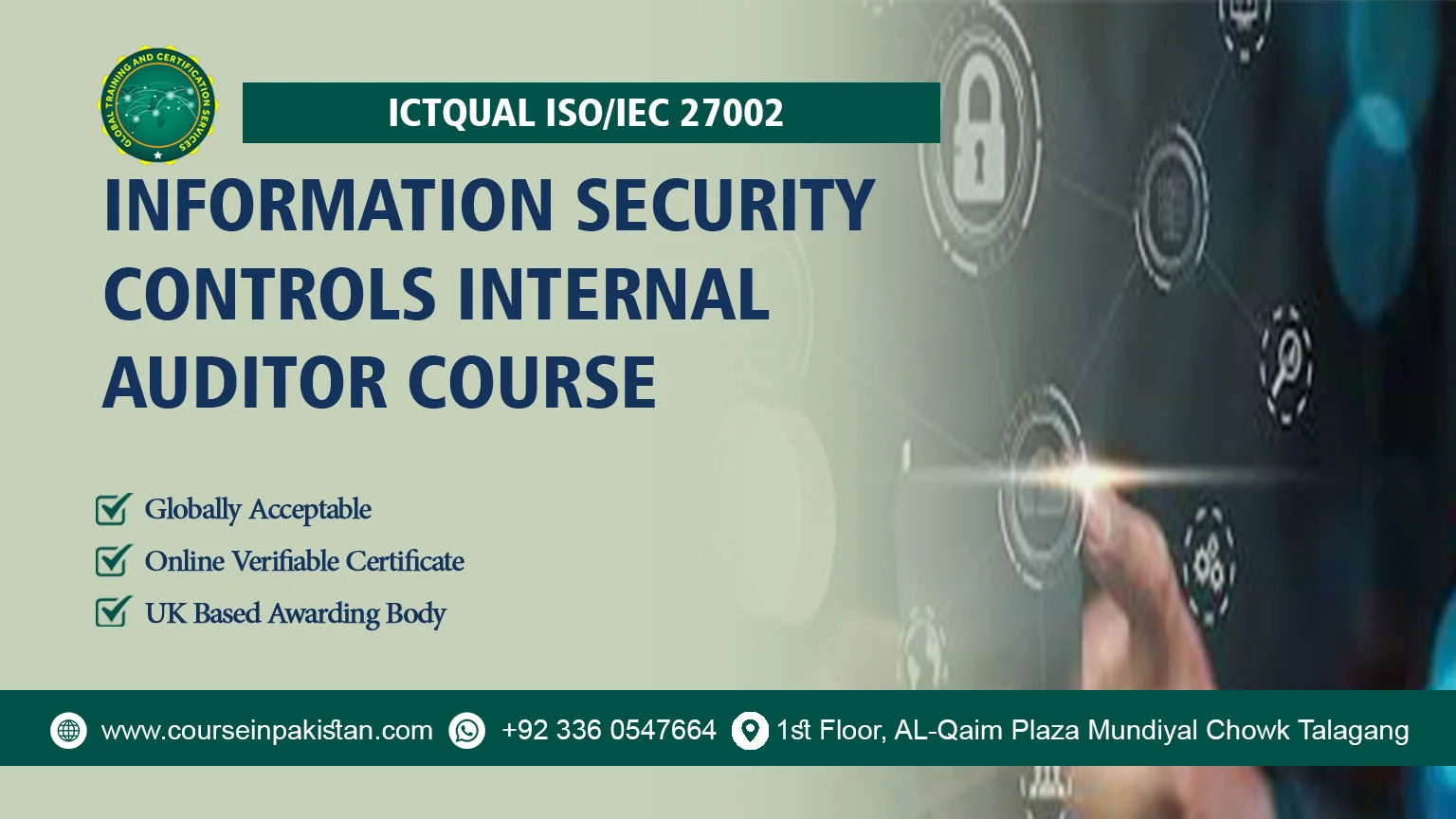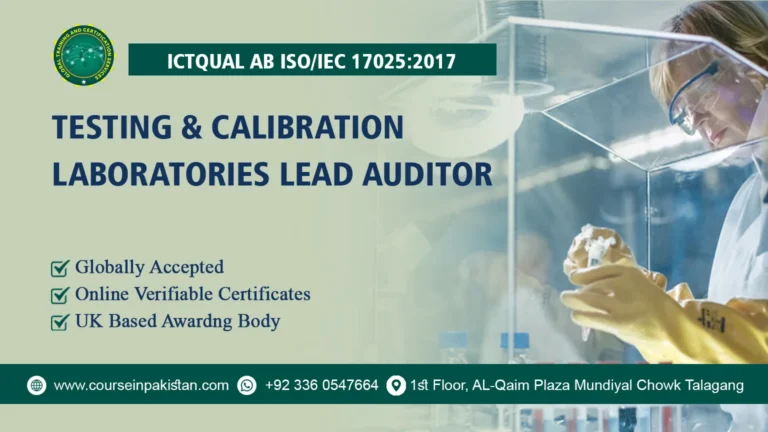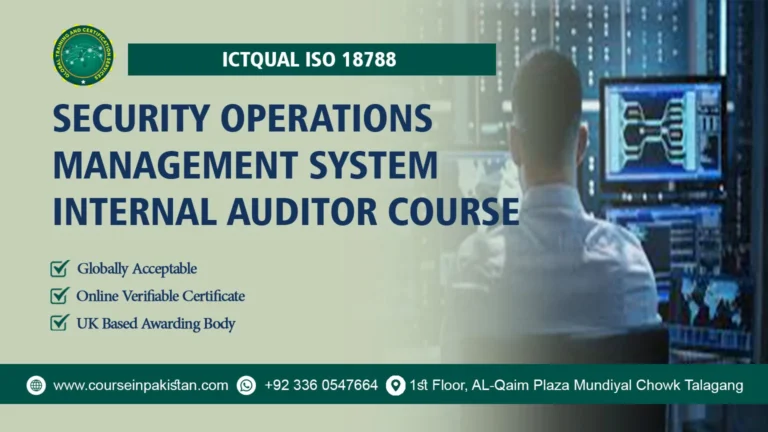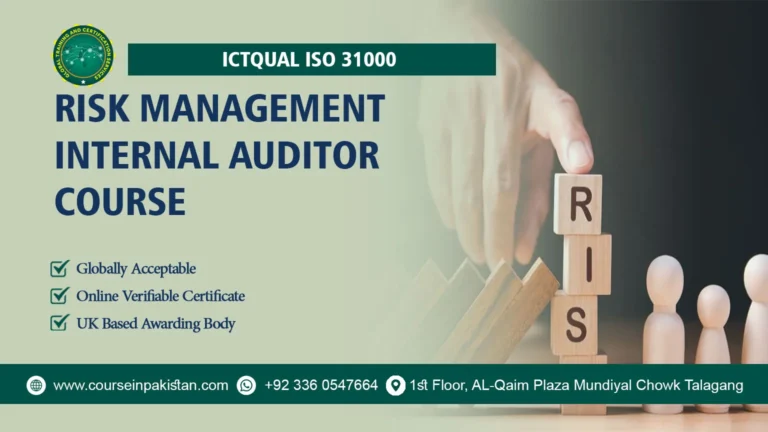
ICTQual ISO/IEC 27002 Information Security Controls Internal Auditor Course
In today’s digital age, where information is a critical asset for organizations, ensuring its security and integrity is paramount. The ISO/IEC 27002 standard provides a comprehensive framework for establishing and maintaining information security controls within an organization. The ISO/IEC 27002 Information Security Controls Internal Auditor Course equips professionals with the skills and knowledge required to audit information security controls based on this international standard.
Course Introduction
The ISO/IEC 27002 Internal Auditor Course focuses on understanding the principles, methodologies, and best practices of information security controls as outlined in ISO/IEC 27002. Participants will learn how to assess the effectiveness of information security controls, identify vulnerabilities, and recommend improvements to enhance information security posture.
Course Overview
Throughout the course, participants will explore essential concepts related to information security, internal auditing principles, audit techniques, and methodologies specific to ISO/IEC 27002. Practical exercises and case studies provide hands-on experience in planning, conducting, reporting, and following up on audits of information security controls. The course emphasizes aligning information security practices with organizational objectives, regulatory compliance, and international standards.
Course Benefits
- Comprehensive Understanding: Gain a thorough understanding of ISO/IEC 27002 standards and information security control principles.
- Auditing Expertise: Develop auditing skills to assess information security controls effectively and identify areas for improvement.
- Global Recognition: Obtain a globally recognized qualification demonstrating competence in auditing information security controls.
- Risk Management: Enhance organizational resilience by identifying and mitigating information security risks.
- Career Advancement: Expand career opportunities in information security, risk management, and internal auditing roles focused on information security controls.
Course Study Units
The course typically covers essential topics such as:
- Introduction to Information Security Controls
- Fundamentals of Internal Auditing
- ISO/IEC 27002 Standard Overview
- Identification and Classification of Information Assets
- Selection and Implementation of Information Security Controls
- Monitoring and Evaluation of Information Security Controls
- Incident Response and Management
- Reporting and Follow-Up
- Continuous Improvement and Compliance
Learning Outcomes
1. Introduction to Information Security Controls
Learning Outcomes:
- Understand the importance of information security controls in protecting organizational assets and ensuring confidentiality, integrity, and availability of information.
- Recognize the role of information security controls in mitigating risks and vulnerabilities associated with information assets.
- Identify key components and principles of effective information security management.
2. Fundamentals of Internal Auditing
Learning Outcomes:
- Define the principles, objectives, and benefits of internal auditing within the context of information security controls.
- Identify the responsibilities and competencies required of internal auditors in auditing information security practices.
- Apply auditing principles to plan, conduct, report, and follow up on audits effectively and ethically.
3. ISO/IEC 27002 Standard Overview
Learning Outcomes:
- Gain a comprehensive understanding of the ISO/IEC 27002 standard and its framework for information security controls.
- Interpret the guidelines and best practices provided by ISO/IEC 27002 for selecting, implementing, and managing information security controls.
- Align organizational practices with ISO/IEC 27002 standards to enhance information security posture and resilience against cyber threats.
4. Identification and Classification of Information Assets
Learning Outcomes:
- Develop methodologies for identifying and classifying information assets based on their value, sensitivity, and criticality to the organization.
- Implement procedures and tools for effectively managing information assets throughout their lifecycle.
- Establish criteria for prioritizing protection measures and allocating resources based on asset classification.
5. Selection and Implementation of Information Security Controls
Learning Outcomes:
- Evaluate and select appropriate information security controls based on risk assessment and organizational requirements.
- Implement information security controls effectively to mitigate identified risks and vulnerabilities.
- Monitor the implementation of controls to ensure compliance with ISO/IEC 27002 standards and organizational policies.
6. Monitoring and Evaluation of Information Security Controls
Learning Outcomes:
- Develop monitoring mechanisms and metrics to assess the effectiveness and performance of information security controls.
- Conduct regular evaluations and audits to verify compliance with established security controls and standards.
- Identify gaps and areas for improvement in information security practices through monitoring and evaluation activities.
7. Incident Response and Management
Learning Outcomes:
- Establish incident response procedures and protocols for timely detection, reporting, and handling of security incidents.
- Implement strategies for containing and mitigating the impact of security incidents on organizational operations.
- Evaluate the effectiveness of incident response measures and update procedures based on lessons learned.
8. Reporting and Follow-Up
Learning Outcomes:
- Prepare clear and concise audit reports that communicate findings, conclusions, and recommendations effectively.
- Provide actionable insights and recommendations based on audit results to improve information security controls.
- Monitor and track the implementation of corrective actions to address identified deficiencies and enhance information security capabilities.
9. Continuous Improvement and Compliance
Learning Outcomes:
- Foster a culture of continuous improvement in information security controls and practices.
- Implement feedback mechanisms and lessons learned from audits to enhance information security resilience.
- Ensure ongoing compliance with ISO/IEC 27002 standards, regulatory requirements, and industry best practices.
By mastering these learning outcomes across the study units of the ISO/IEC 27002 Internal Auditor Course, participants will acquire the knowledge and skills necessary to effectively audit, enhance, and maintain information security controls aligned with ISO/IEC 27002 standards. This expertise enables organizations to uphold information security, protect critical assets, and maintain trust with stakeholders in an increasingly digital and interconnected world. The course is essential for professionals involved in overseeing, auditing, or implementing information security controls within their organizations, ensuring they are well-prepared to address the complexities of information security challenges and safeguard organizational assets effectively.
Who is This Course For?
This course is ideal for:
- Information Security Managers: Responsible for implementing and managing information security controls within organizations.
- Internal Auditors: Looking to specialize in auditing information security management practices and controls.
- Risk Managers: Involved in assessing and mitigating information security risks.
- Compliance Officers: Ensuring adherence to information security standards and regulatory requirements.
Future Progression for This Course
Upon completing the ISO/IEC 27002 Internal Auditor Course, participants can pursue further professional development and career advancement opportunities, such as:
- Lead Auditor Certification: Advance to become a certified lead auditor for ISO/IEC 27002, capable of leading external audits for certification purposes.
- Advanced Information Security Training: Explore specialized courses in cyber security, incident response, or data privacy.
- Consultancy and Advisory Roles: Provide expert advice on information security control best practices and standards implementation to organizations globally.
- Organizational Leadership: Take on leadership roles in information security management, driving strategic initiatives for enhancing organizational resilience against cyber threats.
ISO/IEC 27002 Information Security Controls Internal Auditor Course equips professionals with the knowledge and skills necessary to audit, enhance, and maintain effective information security controls aligned with ISO/IEC 27002 standards. By mastering ISO/IEC 27002 standards and auditing techniques, participants contribute to ensuring organizations uphold information security, protect critical assets, and maintain trust with stakeholders in an increasingly digital and interconnected world. This course is essential for anyone involved in overseeing, auditing, or implementing information security controls within their organizations, ensuring they are well-prepared to address the complexities of information security challenges and safeguard organizational assets effectively.






